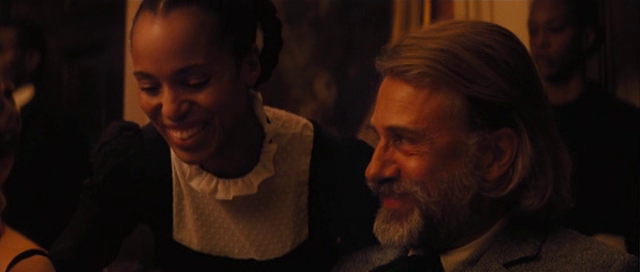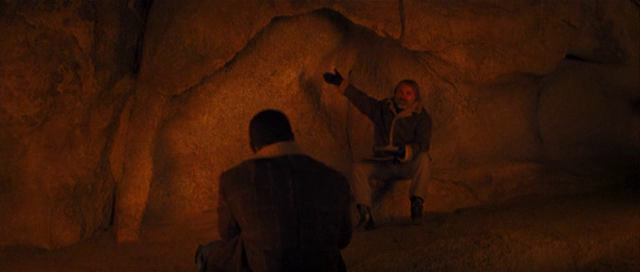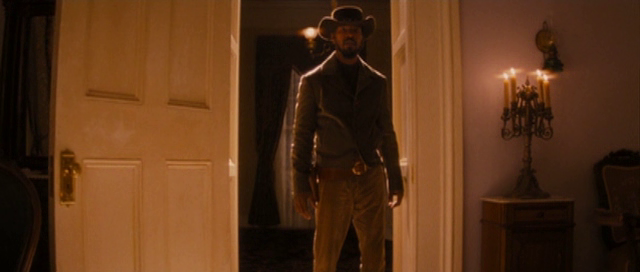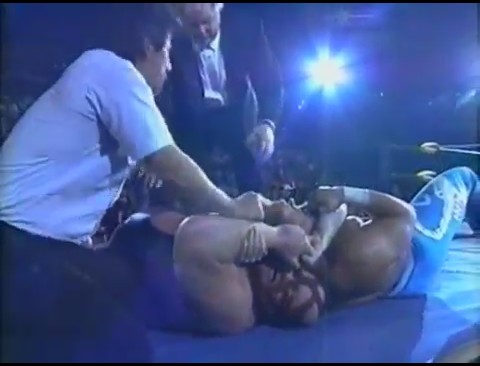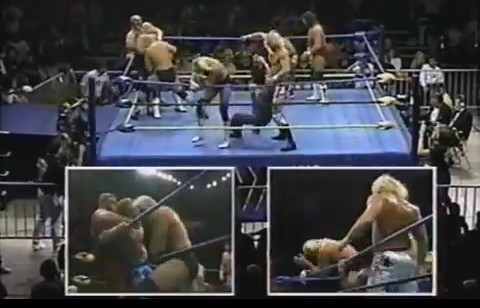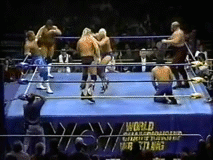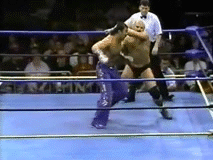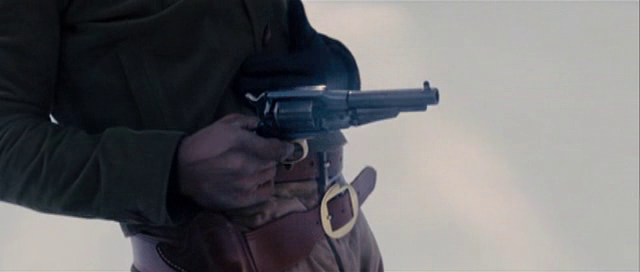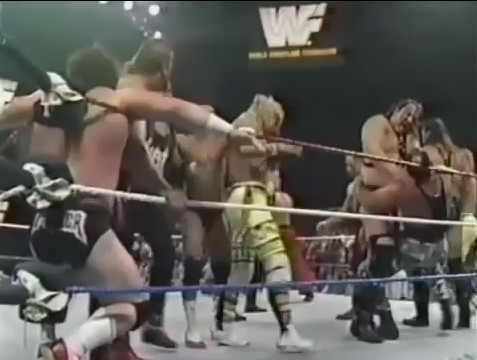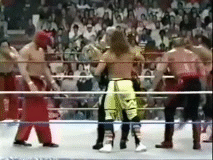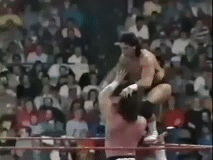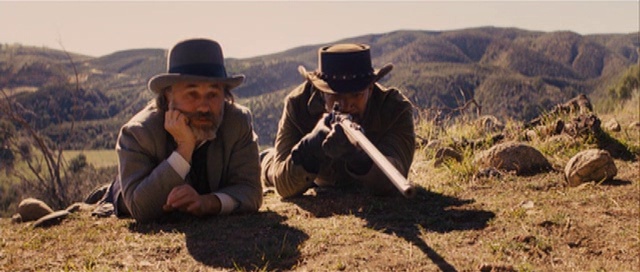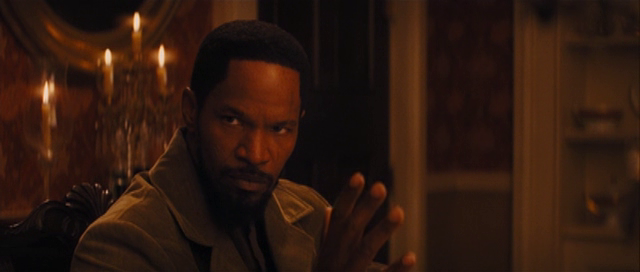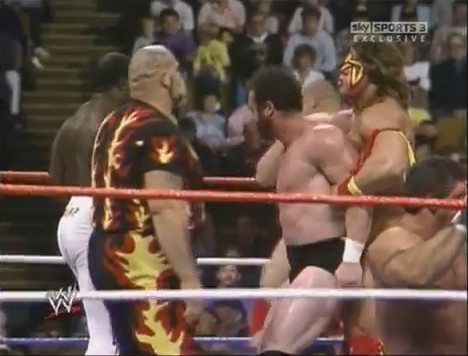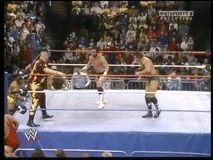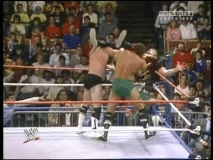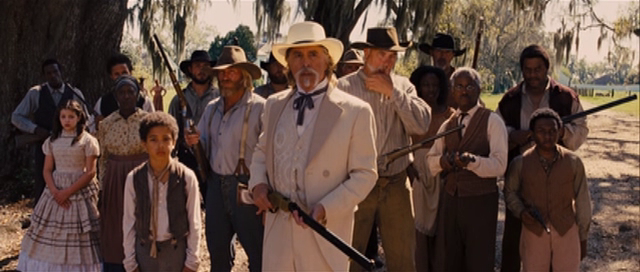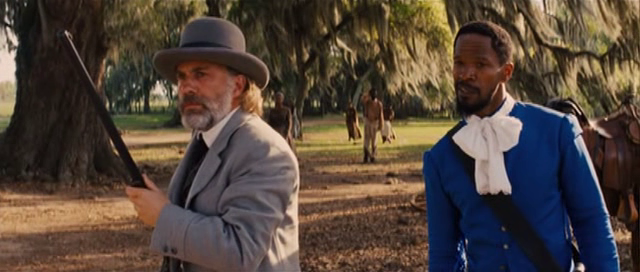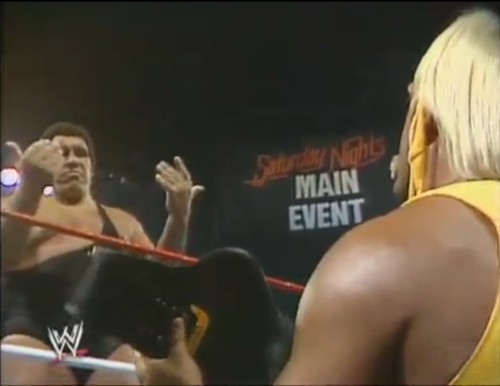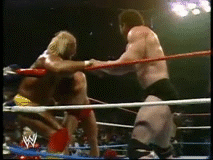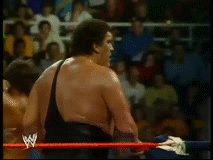
20 Days of Battle Royals: Day 5
January 11th, 2013 Posted by GavokDate: October 4, 1993
Company: WWF
Show: Monday Night Raw
Rules: The surviving two competitors will wrestle a week later
Stipulation: Winners to compete for vacated Intercontinental Championship
Roster (20): Adam Bomb, Bam Bam Bigelow, Bastion Booger, Bob Backlund, Diesel, Giant Gonzalez, Irwin R. Schyster, Jacques, “Superfly” Jimmy Snuka, Mabel, Marty Jannetty, Mr. Perfect, the MVP, 1-2-3 Kid, Owen Hart, Pierre, “Macho Man” Randy Savage, Razor Ramon, “the Model” Rick Martel, and Tatanka.
Shawn Michaels was a very scummy guy in the 90’s and one of the things that shows it off is how insistent he was to not put people over when it came to dropping titles. When it happens once or twice, you can give the man the benefit of the doubt, but over the years, he’s dropped every major title he’s held in some ridiculous fashion that doesn’t involve losing an actual match. One of the first major instances is in late ’93, where as Intercontinental Champion, he is briefly fired from the company. The reasoning has never been clear (rumors include steroids and posturing for a jump to WCW), but in the storyline, he had to vacate the belt due to not defending it within 30 days.
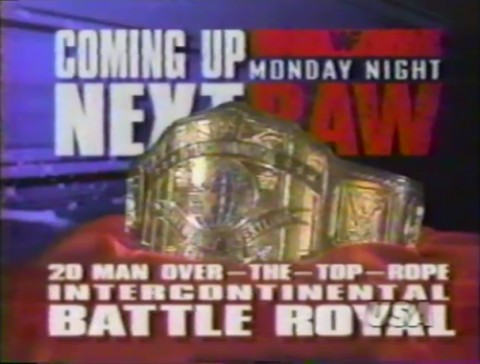
On this Raw, they make the first step in crowning a new champion via a battle royal. 20 men enter and go at it until instead of one winner, there are two. Whoever they are, they’ll have a match the following week on Raw. This is during a time when Raw is only an hour long, so this match actually takes up literally half of it. Strangely, this is chosen for the first half, leaving the rest of the show for squash matches. Why have a half hour battle royal for a major title as the main event when you can just throw on Doink the Clown vs. some guy?
It’s a pretty packed ring in terms of names. It’s arguably a better roster than most Royal Rumbles around this time. While certainly not the best name in there, having Giant Gonzalez in the battle royal is certainly a notable thing due to how his size makes him a kayfabe favorite. Randy Savage enters the ring last and notices how Gonzalez is standing near the corner, facing everyone else while playing it up how ready he is. Savage plays it smart by going right for him.
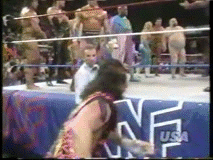
A bunch of guys help him out and out goes Gonzalez within seconds. This would be his final televised appearance in wrestling. The other 19 make the following minutes without elimination plenty entertaining, most notably when Mabel has Tatanka in the corner, looks straight into the camera and yells, “EVERY MAN FOR HIMSELF!” while drooling. Mabel would be the next big threat and his opponents choose to gang up on him. Diesel is the next favorite, though he hasn’t made a name for himself yet in Royal Rumble ’94, and he screws himself over by running full-steam at Mr. Perfect, missing and sailing over the top.
Interesting moment comes when Razor Ramon throws out IRS and starts leaning over the top ropes while pointing at him to leave. If he was a heel, this would be a prime moment for him to be dumped over due to his own stupidity. Instead, it’s used as a perilous moment where Jacque of the Quebeccers almost dumps him out, but Razor barely holds on and gets back in with the help of the 1-2-3 Kid and Savage.
Bam Bam throws Razor out through the middle rope and celebrates, not realizing that he needs to send him over the top. Razor slides back in and takes him out with one hell of a bump.
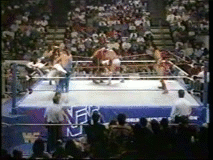
Things begin to thin out after the third commercial break. One of the competitors is newcomer MVP (also known as Abe “Knuckleball” Schwartz), who would go on to do a big pile of nothing in the WWF. Here, he lasts quite a while until Owen Hart flings him out. Owen’s done away with shortly after and we’re down to six. On one side, we have Randy Savage and Razor Ramon. On the other side, we have Rick Martel, the Quebeccers and Adam Bomb. The heels choose to team up together and play the numbers game. There’s some nice commentary by McMahon and Heenan, who come up with reasons as to why these guys would work together. For one, Adam Bomb and the Quebeccers are managed by Johnny Polo. Also, Martel and the Quebeccers are French-Canadian, so there’s a kinship there.
While the French-Canadians triple-team Razor, Savage is able to fight back against Adam Bomb and fireman’s carry him over the top. Bomb is pissed and grabs Savage by the ankle. Bomb’s allies rush him from behind and are able to easily dump him out. Now it’s them against Razor. Personally, I think it would make sense in-story for Martel to try and betray the Quebeccers as due to the rules of the match, he’d be at a huge disadvantage once Razor’s gone, but that never happens. The three proceed to beat down on Razor repeatedly, no matter how many times he fights back.
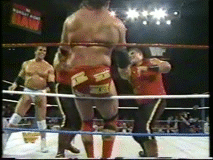
The three have fun messing with him, like having two hold him back while the other smacks him around. Razor kicks down Martel and the Quebeccers go back on the assault. Jacques holds him back while Pierre tries a clothesline. Razor moves, Jacques takes the hit and gets propelled out of the ring. As Pierre reacts to this, Razor grabs him from behind and eliminates him too. He turns right around and gets ready for Martel, doing his angry stomp taunt. The refs won’t allow it.
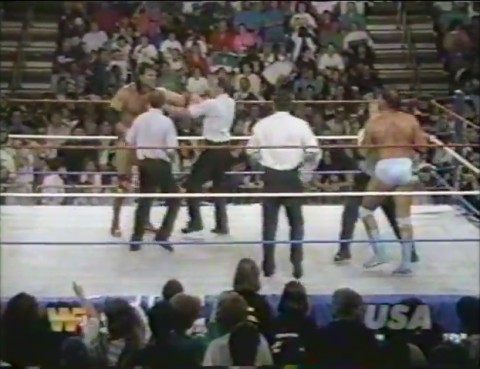
The match is over. Razor Ramon and Rick Martel are the winners. The following week has them wrestle for the vacated Intercontinental Championship and to the surprise of absolutely nobody, Razor wins. Regardless, it’s a pretty awesome match. This would be the last hurrah of Martel, who immediately falls back into obscurity and does nothing for the next few months until his release.
Shawn Michaels would come back weeks later and get injected into a Survivor Series match against the Hart Family due to Jerry Lawler’s legal issues. It made little sense and it sucked, but whatever. He starts a feud with Razor based on how he never lost the Intercontinental Championship, culminating in a legendary Ladder Match at Wrestlemania 10. Razor would win and show himself to be the undisputed Intercontinental Champion.
For tomorrow’s installment: Shawn Michaels is still a piece of shit.

